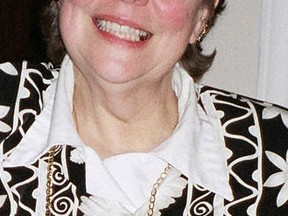The World is a Stage

Article content
Laurel Beechey - The World is a Stage
Under the shade of a majestic white pine, I gaze across a half a mile of blue water to a shore unmarred by humans.
Block-long rocks rise from the lake, collecting pine needles, leaves and scrub brush; just enough to allow a the roots of tiny trees a tenuous hold on life. Further back pines and hemlocks fight to be the tallest, to which the occasional birch or maple add a splash of colour.
Cottages started springing up on Bear Lake back in the 1930s. Although northwest of Huntsville, many of the original cottagers came from Windsor, even though it was a 13-hour trip before the 401 was built. Prior to the cottagers arrival that land was owned by descendants of the original Scandinavian settlers, who were lured falsely to this advertised ‘prime farm land’ which in reality is suitable for little except rock harvesting.
In the early 1870s while Southern Ontario was in a developmental boom and wealthy industrialist like E.D. Tillson were vacationing in large house-size cottages on Lake Muskoka’s these Scandinavians were building square cut log cabins and literally managing to survive. It boomed here when lumber barons brought the railway through. Suddenly, little Jarlsberg had an industry to provide jobs allowing families to eat better, educate their children and fix up their homes.
Towering trees, some over 200 feet tall, were cut down, floated to the village saw mills or shingle mill. The trains arrived to take the lumber to market and provide quick easy transportation to civilization, if you could afford it. Life was better until the seemingly inexhaustible supply of lumber did run out and with the advent of the automobile the rail lines became unnecessary. The landscape was now barren and not good enough to support a family. Jobs were needed.
In the early 1900s the early automobile industry was booming in Windsor and Detroit. The children of the pioneers left this harsh land and went south. Parents, and those left behind, continued to struggle.
One boy, who got a job in Windsor, was queried by his physician in Windsor about the stress he was under. He was trying to provide for his family in Windsor and send money back for his family at Bear Lake. His mother had no money and nothing but worthless land. Of course, it was worthless for those hoping to survive on it, however not worthless to cottagers who could bring their money with them.
The doctor arranged to purchase the mother’s land for himself and two other physicians.
Locals began selling their land and then were hired to clear it and build the cottages. It was very difficult for them to see the family homestead and lands owned by others so much wealthier. Relations between the villagers and cottagers have always been strained.
This same doctor purchased land at the far end of the lake offering it to the Windsor YMCA for a camp, however that fell through as it was too far away from Windsor. That land however has never been sold or developed.
The original family to settle here, owned land from the village about halfway down the west side of the lake, until it met the doctor’s land. 144 years later virtually all that land has never been developed either. The trees here and around the whole lake are the growth after the lumber boom. The descendants today are working with the government to keep the land as is.
These two families have given Bear Lake a wilderness heritage that few other lakes will enjoy. About one half of the land around the lake is a safe haven for the wild animals, which abound up here. It is why we see beaver, otter, loons, deer, bears and a multitude of other woodland creatures.
When the five otters, playing off mom’s point, saw us in the window watching, they headed for Picnic Point on the other side. So did a turtle and even a chipmunk set off to swim that half mile! They know where they are safe from humans and dogs.
The dead heads (sunken trees), remnants of the lumber days, still on occasion are pulled and the north village shore still has sawdust from the mills at the bottom.
It was indeed a privilege to have our summers up here back in the 1950s and 1960s when most mothers didn’t work and fathers would dump families here for the summer. It is where imaginations ruled and where freedoms and responsibilities were learned, not only to better ourselves, but understand nature surrounding us.
Mom and I have enjoyed two weeks here, enjoying the water, rocks, trees and the birds and animals around us. Here, our souls are soothed and bodies somewhat restored. Almost heaven.